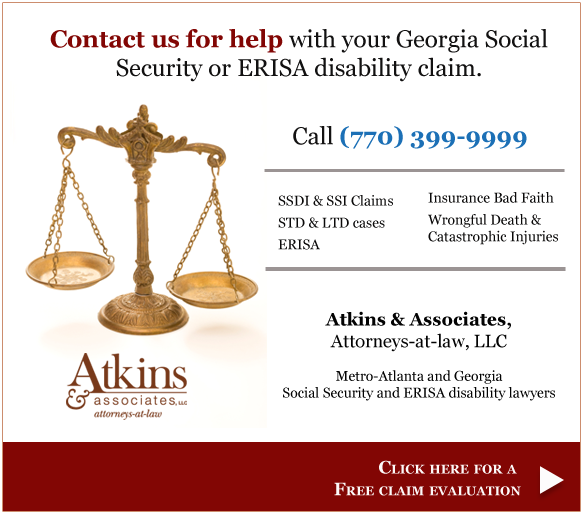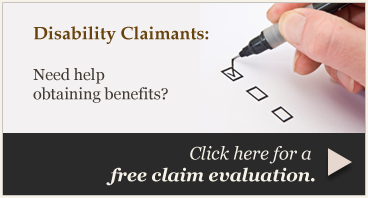Bad Faith Tactics Used to Deny Legitimate Claims
What are Bad Faith Insurance Claims Handling Practices?
Bad faith (Latin: mala fides) is double mindedness or double heartedness in duplicity, fraud, or deception. It may involve intentional deceit of others, or self deception. Faith is a strong or unshakable belief in something; bad faith is when the strong or unshakeable belief is irrational or unreasonable given known facts, or pretended to be held as a belief.Insurance bad faith is a legal term of art that describes a tort claim that an insured person may have against an insurance company for its bad acts. Under the law of most jurisdictions in the United States, insurance companies owe a duty of good faith and fair dealing to the persons they insure. This duty is often referred to as the “implied covenant of good faith and fair dealing” which automatically exists by operation of law in every insurance contract. If an insurance company violates that covenant, the insured person (or “policyholder”) may sue the company on a tort claim in addition to a standard breach of contract claim. The contract-tort distinction is significant because as a matter of public policy, punitive or exemplary damages are unavailable for contract claims, but are available for tort claims. The end result is that a plaintiff in an insurance bad faith case may be able to recover an amount larger than the original face value of the policy, if the insurance company’s conduct was particularly egregious. Consumer protections by statute vary greatly from state to state; unfortunately, Georgia has very weak bad faith statutes and few laws protecting insurance consumers to deter wrongful conduct. States such as California provide a marked contrast. Georgia has failed to even adopt the laws unanimously recommended by the National Association of Insurance Commissioners (NACI) including the elimination of discretionary language in insurance policies.Bad faith can arise in the context of coverage for disability, health insurance or life insurance, but the majority if these cases are preempted by ERISA.
Bad Faith Tactics Utilized to Deny Claims.
 The following is a list in no specific order of questions to consider when determining whether bad faith tactics were utilized to deny/terminate legitimate claims.
The following is a list in no specific order of questions to consider when determining whether bad faith tactics were utilized to deny/terminate legitimate claims.
Did the Insurer…?
- Look For Facts To Support Claim?
- Pay benefits conditionally or with reservation of rights beyond a reasonable time and threaten recovery against claimant? ROR -Fail To Pay Under? Use For Too Long?
- Assert requirements that appear no place in the policy-imposing new terms?
- Contrive and allege material misrepresentations by claimant?
- Conduct Neutral/Detached Investigation?
- Denial issued without addressing all impairments and evidence in support of disability?
- Denial issued based on wrong policy definition or incorrect standard or standard not set out in policy?
- Lie, Conceal, or Misrepresent To Insured Or Their Attorney?
- Thorough, Fair, Prompt & Objective Claim Investigation?
- Restrictive View Of Their Claim Form?
- Use Improper Standards Undefined In Policy Or Concealed At Time Of Sale?
- Claim Handling Designed To Delay, Deny Or Hold Onto The Money?
- Rank reviews by rogue reviewers? Doctors given incomplete and limited information or asked only to answer specific, misleading questions?
- Destroy/Shred Documents? Only Face To Face Meetings To Avoid Documentation?
- Abusive/Coercive Claims Practices?
- Demand Tax Returns for TD Claim?
- Shady surveillance by sleazy spies? PIs That Trespass?
- Field Reps Focus on Flimsy Issues?
- Follow You Forever without finding inconsistent activity? Looking too long for the needle in the haystack?
- Demanding Documents in a DR’s Waiting Room?
- Field Rep Visits from Nowhere? Unannounced?
- Interlope on the Internet? Facebook.com? Match.com? Myspace? Meetup? Google?
- Conduct Global Database Searches?
- Abuse the Insured’s Authorizations?
- Investigate Occupational Duties?
- Review your VE? Use DOT? O’Net?
- Use FCE?
- IME Doctor Overused?
- Investigate $ Earned By IME Doctor?
- Investigate Treaters vs. IME’s Qualifications?
- Claim Rep Reasoning In Writing?
- Med Dept. Reasoning In Writing?
- Document All Conversations?
- Correctly Interpret Policy?
- Timely Advise Insured of Rights & Remedies?
- Financially Biased Vendors?
- Leading Questions?
- Company Promises Fulfilled?
- Eye Toward Denial? Look for a reasonable basis to pay or any basis to deny?
- Insured On Equal Footing?
- Claim File – Incomplete? – Inconsistent?
- Policy Definitions Used = Marketing Promises?
- Hand in sand? Or rush to judgment? Lack of Information Due To Poor Investigation or quickie denials?
- Deny Based Upon Speculation?
- Provide Reasonable Denial Explanation?
- Disclose All Significant Facts?
- Financial Impact on Company Considered?
- Undue Emphasis on Facts Favoring Denial?
- Rely on Biased In-house Medical?
- Upper Management OK Improper Standards/Procedures?
- Claims Rep Properly Trained?
- Post Claim Underwriting?
- Dec Relief = Unreasonable Litigation?
- Low Settlement Offers?
- Trash, Bash Insured?
- Rationalize Away Legitimate R&L’s?
- Public Disclosure Of Private Information?
- Smear Campaign?
- Arbitrary Goals?
- Rewards For Denials?
- All Benefits Disclosed?
- Conceal How It Interprets Policy Terms?
- Violate the law?
- Did they adhere to the Fair Claims Practices?
- Properly Train Claims Handlers on the law?
- Daily Medical Quotas?
- Did they deny/terminate more than once?
- Apologize?
More than 100,000 disability claims are filed each year. That number is increasing by close to 20% yearly. In this complex, ever evolving, high stakes area, a claimant must have an up to date, in-depth understanding of the legal, medical, and vocational issues confronting the claim.






























